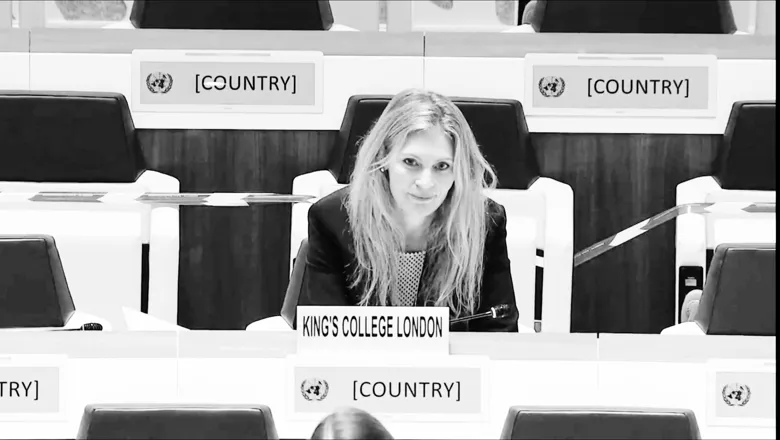States party to the Biological Weapons Convention must seriously consider how to make the broader biological disarmament architecture more fit for purpose in today’s world. A key element of that would be international structures to systematically register, monitor and inspect maximum-containment labs and high-risk biological activities like gain-of-function experiments with potentially pandemic pathogens.
Dr Filippa Lentzos
03 September 2021
Call for strengthening controls on biological weapons through international treaty
King's College London academic delivers statement to the United Nations on behalf of more than 50 individuals and organisations

Tighter control is needed on biological weapons, according to a statement backed by more than 50 organisations and individuals and presented by a King’s academic at a meeting of states party to the Biological Weapons Convention this week.
The international treaty has prohibited the use of biology for non-peaceful purposes for nearly fifty years, but unlike its sister-treaties, the Chemical Weapons Convention and the Nuclear Non-Proliferation Treaty, it lacks a verification regime to ensure compliance.
Dr Filippa Lentzos told the eight-day meeting of experts at the Palais des Nations in Geneva, Switzerland that scientific and technological advances must be harnessed to increase confidence that biological activities are only being conducted for peaceful purposes.
With repercussions of COVID-19 felt across the globe, the statement highlighted the “damaging effects disease can have on societies, whether natural, accidental or deliberate in origin” and called for lessons from the current pandemic to be drawn to enhance preparedness for future outbreaks of disease that may be deliberate.
It said that if governments respond to the current pandemic in ways that reduce the impacts of existing and new infectious diseases, this would not only be good for public health, it would also be an extremely powerful action to counter biological weapons.
The statement sets out several recommendations around strengthening institutions, co-operation and assistance, response and preparedness, science and technology, and national implementation.
The statement was backed by a range of academics and Non-Governmental Organisations (NGOs) including the Federation of American Scientists, the International Federation of Biosafety Associations, the International Network of Engineers and Scientists for Global Responsibility, and the Women’s International League for Peace & Freedom.
Dr Lentzos, who conducts research into biological threats and biosecurity and acts as the NGO Coordinator for the Biological Weapons Convention, said:
